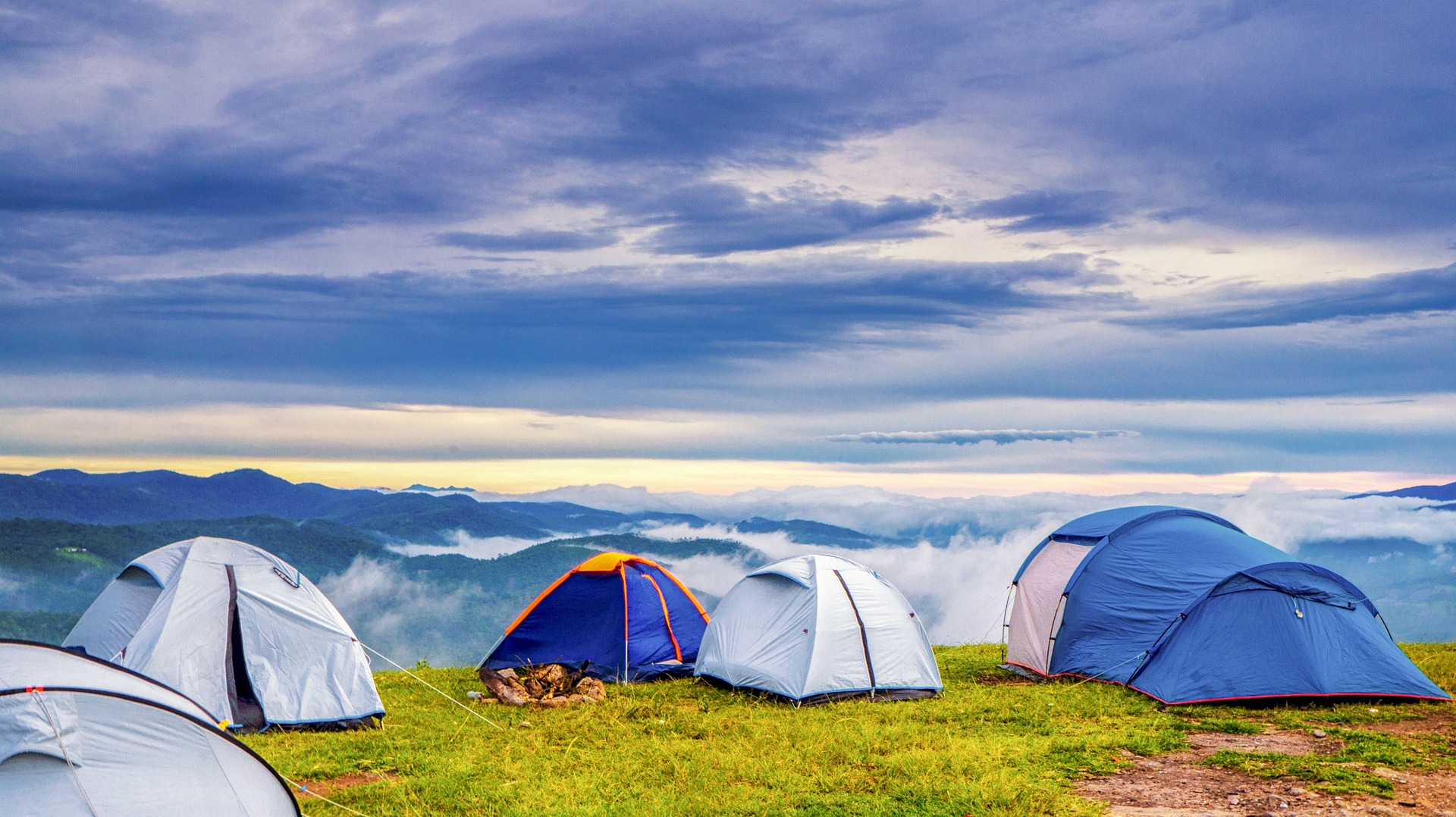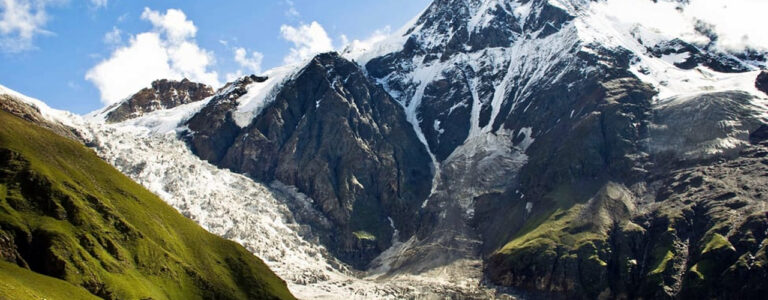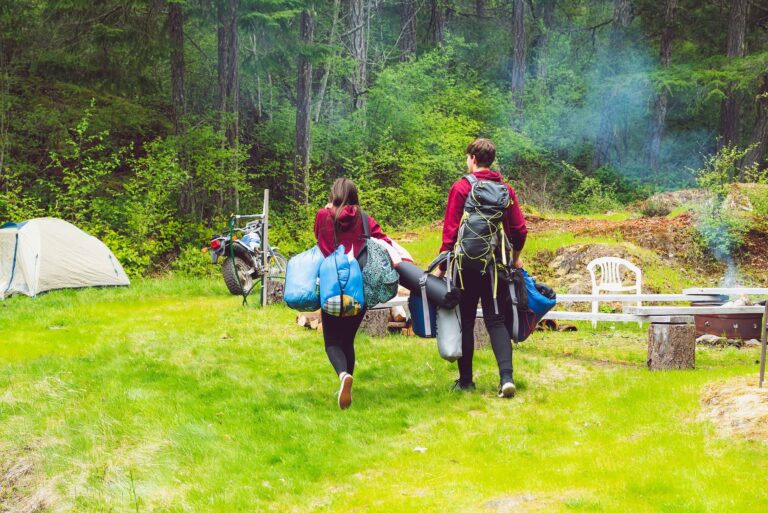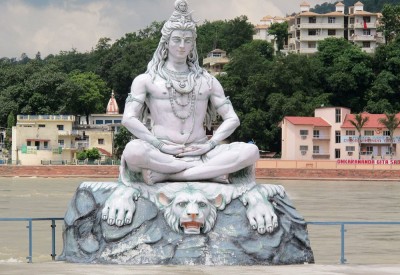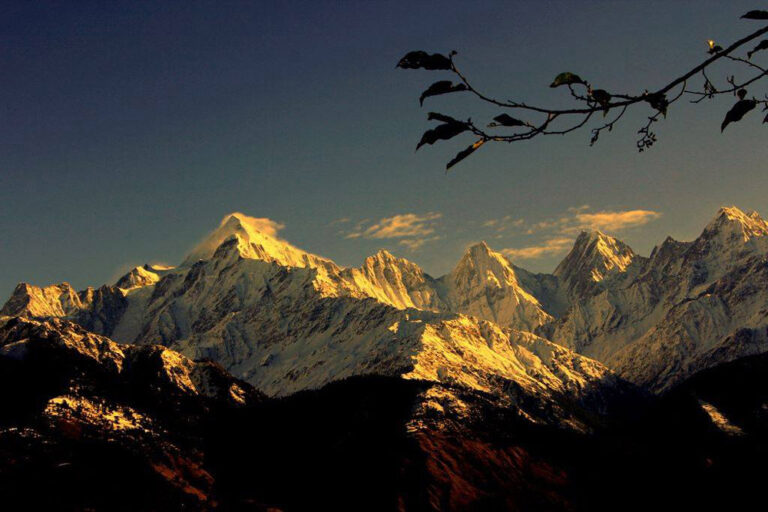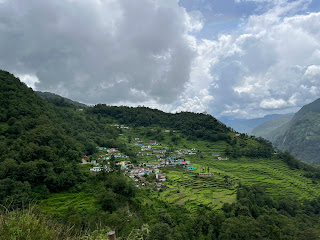Camping : Embracing Nature’s Retreat
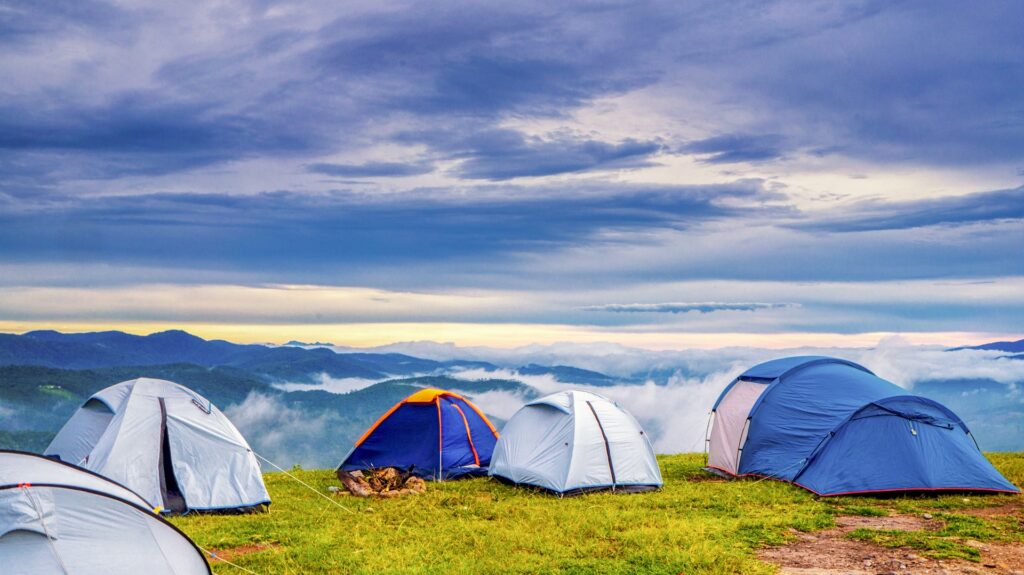
Embarking on a camping adventure is not merely an escape from the hustle and bustle of everyday life, it is a journey into the heart of nature, a chance to disconnect and rejuvenate the soul. Camping allows individuals to immerse themselves in the serene beauty of the outdoors, fostering a profound connection with the natural world. In this comprehensive guide, we will delve into the various aspects of camping, providing insights into planning, setting up camp, outdoor cooking, exploring nature, safety precautions, and ways to connect with the environment. Whether you are a novice camper or a seasoned outdoor enthusiast, this guide is designed to enhance your camping experience and deepen your appreciation for the great outdoors.
Benefits of Camping:
Before we delve into the details of planning and executing a camping trip, let’s explore the myriad benefits that camping offers. Camping is more than just pitching a tent and sleeping under the stars; it is a transformative experience that has physical, mental, and emotional advantages.
One of the most significant benefits of camping is the opportunity to disconnect from the digital world and reconnect with nature. In our technology-driven lives, taking a break from screens and immersing ourselves in the natural environment can rejuvenate our minds and reduce stress. The fresh air, the soothing sounds of rustling leaves, and the absence of constant notifications create a serene atmosphere that promotes relaxation.
Camping is also a fantastic way to engage in physical activities and exercise. Hiking, biking, fishing, and other outdoor pursuits not only provide cardiovascular benefits but also offer a refreshing change from sedentary routines. Additionally, exposure to natural sunlight during camping trips helps regulate circadian rhythms, improving sleep quality and overall well-being.
Moreover, camping fosters a sense of camaraderie and shared experiences. Whether you are camping with family, friends, or solo, the challenges and joys of outdoor living create lasting memories and strengthen bonds. Sitting around a campfire, sharing stories, and cooking meals together build connections that are often hard to replicate in our daily lives.
In summary, camping is a holistic experience that rejuvenates the mind, body, and spirit, offering a multitude of benefits for those willing to embrace the wilderness. Now, let’s embark on a journey through the essential aspects of camping to ensure a memorable and enjoyable outdoor adventure.
Table of Contents
Planning Your Camping Trip
Choosing the Right Campsite:
Selecting the perfect campsite is crucial for a successful camping trip. Consider the type of experience you seek – whether it’s a remote, backcountry adventure or a family-friendly campground. Research the amenities, regulations, and available activities at potential sites. Pay attention to factors such as proximity to water sources, level ground for tent pitching, and accessibility. Many national and state parks offer online reservations, allowing you to secure your spot well in advance.
Essential Camping Gear:
Prepare a comprehensive camping checklist to ensure you have all the necessary gear for a comfortable and safe experience. This includes a reliable tent, sleeping bags, camping stove, cooking utensils, headlamps, and appropriate clothing for varying weather conditions. Invest in quality equipment and familiarize yourself with its setup before heading into the wilderness. Pack essentials like a first aid kit, navigation tools, and a multi-tool for unforeseen situations. Organizing gear into categories and using storage containers can help keep your campsite tidy.
Meal Planning and Preparation:
Mastering the art of camping cuisine adds a delightful dimension to your outdoor experience. Plan meals that are easy to prepare with minimal equipment, opting for lightweight, non-perishable ingredients. Consider dietary restrictions and preferences of all campers. Prepping some meals in advance and utilizing zip-lock bags for marinating or storing food helps streamline cooking at the campsite. Don’t forget to pack a cooler with perishables and bring along snacks to keep energy levels up during outdoor activities.
Weather Considerations:
Nature is unpredictable, and weather conditions can change rapidly. Stay informed about the forecast for your camping location and pack accordingly. Ensure your tent is waterproof, and bring layers to accommodate temperature fluctuations. A portable weather radio or a reliable weather app can provide real-time updates. Be prepared for rain, wind, or unexpected temperature drops, and always prioritize safety by monitoring weather conditions throughout your trip.
Setting Up Camp
Tent Pitching Techniques:
Setting up your tent efficiently is a fundamental skill for any camper. Choose a level surface and clear the area of rocks and debris. Lay a ground tarp to protect the tent floor, and assemble the poles according to the manufacturer’s instructions. Stake down the tent securely, adjusting tension to prevent sagging or overstretching. Practice setting up your tent at home to familiarize yourself with the process, ensuring a smooth setup in the great outdoors.
Campfire Safety:
A campfire is a quintessential part of camping, providing warmth, light, and a focal point for socializing. Prioritize safety by selecting a designated fire ring or pit, keeping a safe distance from tents and vegetation. Gather dry, dead wood for fuel, and never leave the fire unattended. Always have a water source nearby and extinguish the fire completely before bedtime or departure. Familiarize yourself with local fire regulations and consider alternatives like portable stoves in areas with fire restrictions.
Creating a Comfortable Sleeping Area:
A good night’s sleep is essential for an enjoyable camping experience. Invest in quality sleeping bags and sleeping pads to insulate against the cold ground. Arrange your sleeping area strategically within the tent, keeping gear organized and creating a comfortable layout. Use inflatable camping pillows for added comfort. Consider earplugs and an eye mask to minimize disturbances and enhance your sleep quality, especially in unfamiliar outdoor settings.
Campsite Organization:
Maintaining an organized campsite not only enhances efficiency but also minimizes environmental impact. Designate specific areas for cooking, eating, and disposing of waste. Utilize storage containers to keep gear organized and easily accessible. Follow the “Leave No Trace” principles, leaving your campsite as you found it. This not only preserves the natural beauty of the area but also ensures a positive experience for future campers.
Outdoor Cooking
Campfire Cooking:
Cooking over a campfire adds a rustic charm to the camping experience. Master the art of building and maintaining a campfire, using dry wood and kindling to achieve a steady flame. Invest in quality cast iron cookware for versatile and durable campfire cooking. Learn essential techniques such as foil packet cooking, skewer grilling, and Dutch oven baking. Experiment with recipes that showcase the unique flavors imparted by open-flame cooking.
Portable Stove Options:
In areas where campfires are restricted, portable stoves offer a convenient and efficient alternative. Choose a stove based on your cooking needs and fuel preferences. Propane stoves are popular for their ease of use, while backpackers may opt for compact, lightweight models that use canister fuel. Practice using your stove before the trip to ensure proper operation. Bring along extra fuel canisters, especially for longer journeys.
Delicious Camping Recipes:
Elevate your camping culinary skills with simple and delicious recipes. From one-pot wonders to gourmet camping meals, there’s a wide range of options to suit your tastes. Plan meals that use common ingredients across multiple recipes to minimize packing. Consider prepping ingredients at home to reduce cooking time at the campsite. Explore recipes for breakfast, lunch, dinner, and snacks that cater to your dietary preferences and provide the energy needed for outdoor activities.
Food Safety in the Wilderness:
Maintaining food safety is crucial for a healthy camping experience. Store perishable items in a well-insulated cooler with ice packs or block ice. Keep raw meats separate from other foods to prevent cross-contamination. Practice proper hand hygiene and use biodegradable soap for dishwashing. Dispose of food waste responsibly, either by packing it out or using designated waste disposal facilities. Familiarize yourself with local wildlife and take precautions to secure food to prevent unwanted animal encounters.
Exploring the Great Outdoors
Hiking Tips and Trails:
Hiking is an integral part of camping, offering the chance to explore the natural surroundings. Research and choose trails suitable for your fitness level and preferences. Pack a map, compass, or GPS device to navigate unfamiliar terrain. Wear comfortable, supportive footwear and dress in layers to accommodate changing weather conditions. Hydrate regularly and be mindful of trail etiquette, yielding to other hikers and respecting the environment.
Bird Watching and Wildlife Observation:
Camping provides a unique opportunity for bird watching and wildlife observation. Bring along binoculars and field guides to identify local flora and fauna. Keep a respectful distance from wildlife to avoid disturbing their natural behavior. Practice silent observation and refrain from feeding wild animals, as it disrupts their natural diet and behavior. Capture these moments with a camera or journal to create lasting memories of your encounters with nature.
Fishing and Water Activities:
If your campsite is near a body of water, fishing and water activities can add an extra layer of enjoyment to your camping trip. Research local fishing regulations and obtain any necessary permits. Pack lightweight fishing gear and lures suitable for the targeted fish species. Consider bringing inflatable kayaks, canoes, or paddleboards for water exploration. Always prioritize safety on the water by wearing appropriate flotation devices and following water safety guidelines.
Photography in Nature:
Capture the beauty of the outdoors by bringing along a camera or smartphone equipped with a quality lens. Experiment with composition techniques to convey the vastness and intricacies of nature. Consider the golden hour – the time just after sunrise or before sunset – for optimal lighting. Explore different perspectives, from macro shots of plants to panoramic views of landscapes. Share your camping experiences through photography, creating a visual narrative of your journey and preserving memories for years to come.
Safety in the Wilderness
First Aid Kit Essentials:
A well-prepared first aid kit is a vital component of any camping trip. Customize your kit to meet your specific needs, including items like bandages, antiseptic wipes, pain relievers, blister treatment, and any necessary prescription medications. Familiarize yourself with basic first aid procedures, such as treating minor cuts, burns, or insect bites. Regularly check and restock your first aid kit before each camping trip to ensure it remains well-equipped for any unforeseen medical needs.
Navigation Skills:
Navigating the wilderness requires a basic understanding of map reading, compass use, and, in modern times, GPS devices. Before embarking on your camping trip, study the area’s topographic maps and identify key landmarks. Carry a reliable compass and know how to use it for navigation. GPS devices can provide real-time location tracking, but it’s essential to have a backup plan, especially in areas with poor signal reception. Stay on marked trails, and inform someone of your itinerary before venturing into unfamiliar territory.
Wildlife Encounters:
Encountering wildlife is an exhilarating aspect of camping, but it’s crucial to approach it with caution and respect. Research the local wildlife in the area you’ll be camping and understand their habits and habitats. Keep a safe distance and avoid approaching or feeding wild animals. Store food securely to prevent attracting unwanted attention. In the rare event of a close encounter, remain calm, make noise to alert the animal of your presence, and slowly back away.
Leave No Trace Principles:
Responsible camping involves following the “Leave No Trace” principles to minimize your environmental impact. These principles include disposing of waste properly, respecting wildlife, staying on designated trails, and minimizing campfire impact. Practice ethical camping by carrying out all trash, using designated bathroom facilities or digging a cat hole for waste disposal, and respecting the natural flora and fauna. By adhering to these principles, you contribute to the preservation of the environment for future generations of campers.
Connecting with Nature
Stargazing Tips:
Camping offers a unique opportunity to witness the beauty of the night sky away from the glare of city lights. Familiarize yourself with basic stargazing techniques, such as identifying constellations, planets, and meteor showers. Bring along a telescope or binoculars for a closer look at celestial wonders. Choose a campsite away from artificial lights, and let your eyes adjust to the darkness for optimal stargazing. Capture the moment with long-exposure photography to immortalize the breathtaking night sky.
Nature Meditation and Yoga:
Immerse yourself in the tranquility of nature through meditation and yoga. Find a peaceful spot in your campsite or a nearby natural setting. Practice deep-breathing exercises, guided meditation, or yoga poses that connect you with the surrounding environment. Engaging in these activities enhances mindfulness, reduces stress, and fosters a profound sense of connection with the natural world. Embrace the sounds of nature as a soundtrack to your meditation or yoga practice, allowing the serene environment to guide your inner journey.
Forest Bathing:
Forest bathing, or shinrin-yoku, is a Japanese practice that involves immersing oneself in the sights, sounds, and scents of the forest. Take leisurely walks through the woods, allowing your senses to absorb the natural surroundings. Notice the textures of tree bark, the rustling of leaves, and the aroma of the forest. Disconnect from electronic devices and fully engage with the present moment. Scientific studies suggest that forest bathing can reduce stress, lower blood pressure, and boost overall well-being.
Mindfulness in Nature:
Practice mindfulness by fully engaging your senses in the present moment during your camping trip. Whether it’s observing the intricate patterns of a spider’s web or listening to the rhythmic flow of a nearby stream, mindfulness in nature cultivates a deep appreciation for the world around you. Take moments to sit quietly, close your eyes, and listen to the sounds of nature. Notice the scents carried by the breeze and feel the earth beneath you. Embrace the simplicity of being present in the natural environment, allowing it to rejuvenate your mind and spirit
FAQ
Q: How can I ensure a comfortable night’s sleep while camping?
A: Invest in quality sleeping bags and sleeping pads to insulate against the cold ground. Arrange your sleeping area strategically within the tent, keeping gear organized and creating a comfortable layout. Use inflatable camping pillows for added comfort.
Q: What are the essential items to include in a first aid kit for camping?
A: A comprehensive first aid kit should include bandages, antiseptic wipes, pain relievers, blister treatment, any necessary prescription medications, and basic first aid instructions. Customize the kit based on your specific medical needs.
Q: How do I choose the right campsite for my camping trip?
A: Consider the type of experience you seek, whether it’s a remote adventure or a family-friendly campground. Research potential campsites, taking into account amenities, regulations, and available activities. Choose a level surface with proximity to water sources and assess accessibility.
Q: Are there any safety tips for camping with children?
A: When camping with children, prioritize safety by choosing family-friendly campsites with amenities such as restroom facilities and easy access to water sources. Teach children basic outdoor safety, including proper fire safety and wildlife awareness. Ensure they have suitable clothing and gear, and monitor their activities to prevent accidents. Pack entertainment items such as games and nature guides to keep them engaged during downtime.
Q: Can I camp in any national or state park, or are there specific regulations?
A: Each national or state park has its own set of regulations and camping policies. Check the official website of the park you plan to visit for specific guidelines regarding camping permits, reservation requirements, and any restrictions on activities. Familiarize yourself with these regulations to ensure a smooth and compliant camping experience.
Q: How can I introduce friends or family to camping who may be hesitant about the outdoors?
A: Start with a short and comfortable camping trip, preferably in a designated campground with amenities. Address any concerns they may have, such as safety or discomfort, and emphasize the positive aspects of the experience, such as enjoying nature and building connections. Plan enjoyable activities and share your own passion for camping to create a positive introduction for newcomers.
Embracing the Wilderness
Camping is a transformative experience that allows individuals to reconnect with nature, rejuvenate their minds, and create lasting memories. From the planning stages to setting up camp, exploring the great outdoors, and fostering a sense of mindfulness, camping offers a multitude of benefits for those seeking adventure and a break from the routines of daily life.
By embracing eco-friendly practices, responsible waste management, and supporting local conservation efforts, campers can contribute to the sustainability of natural environments. Whether you are a seasoned outdoor enthusiast or a novice camper, the key lies in respecting the wilderness, leaving no trace, and cherishing the beauty of the natural world.
As you embark on your camping journey, remember that the essence of camping goes beyond setting up a tent or cooking over a campfire. It’s about forging a deep connection with the environment, immersing yourself in the serenity of nature, and appreciating the simplicity of outdoor living. So, pack your gear, leave behind the stresses of everyday life, and embrace the wilderness – a place where adventure and tranquility converge.

